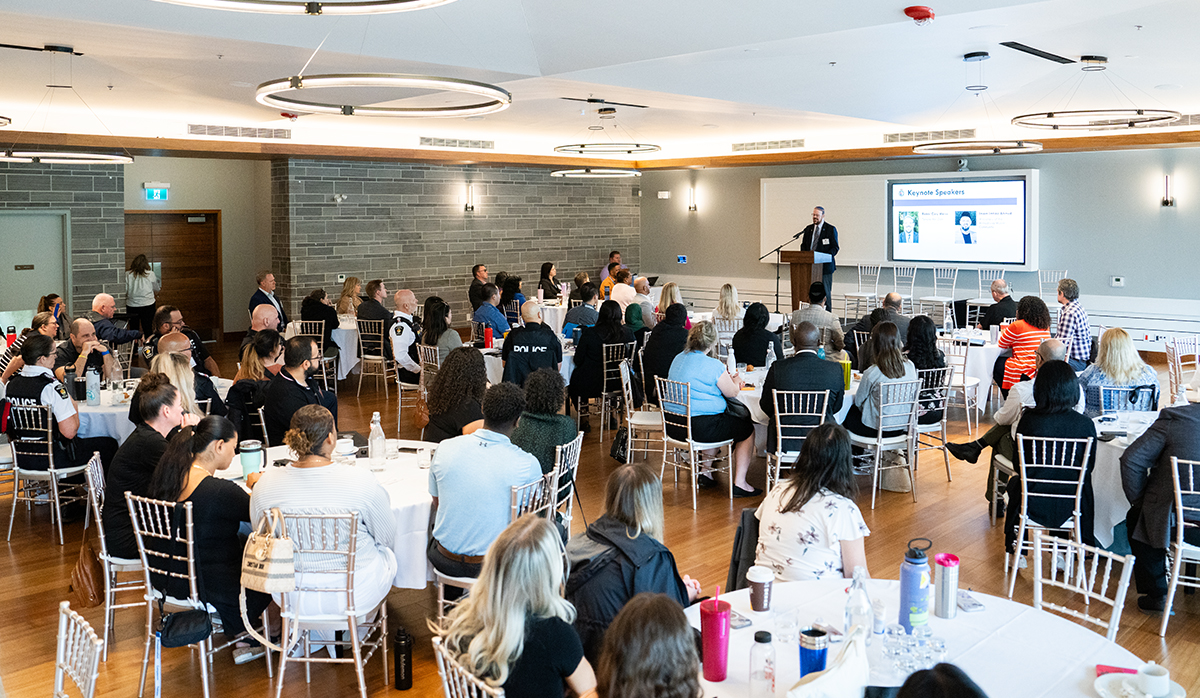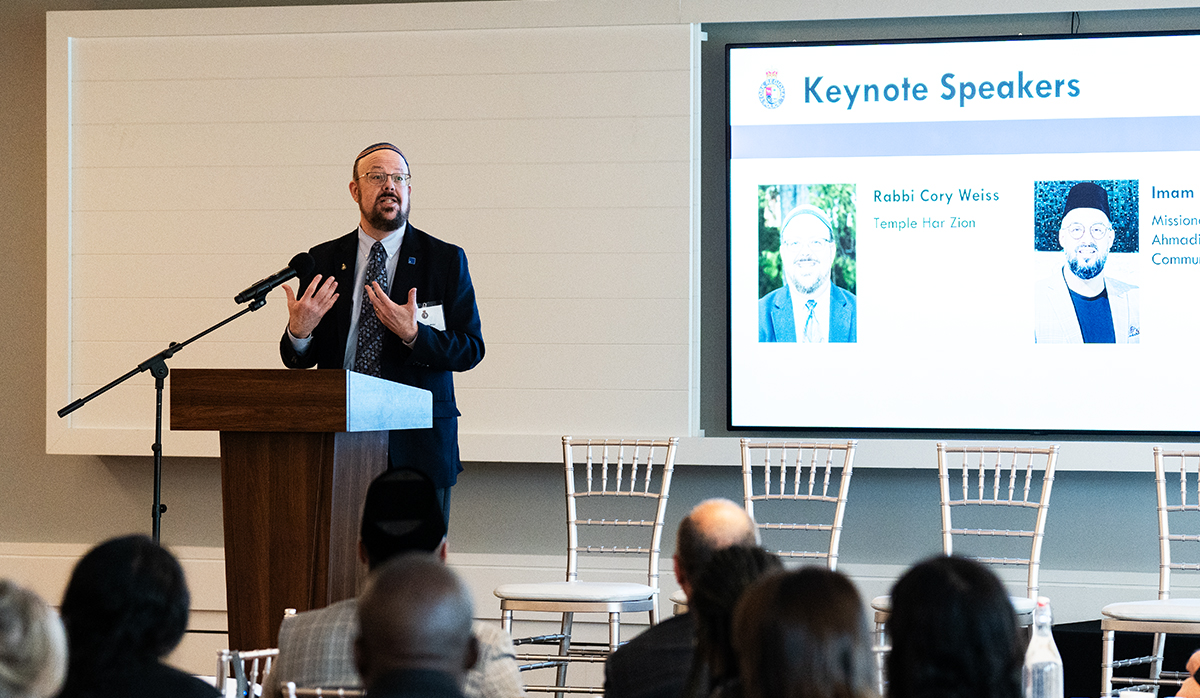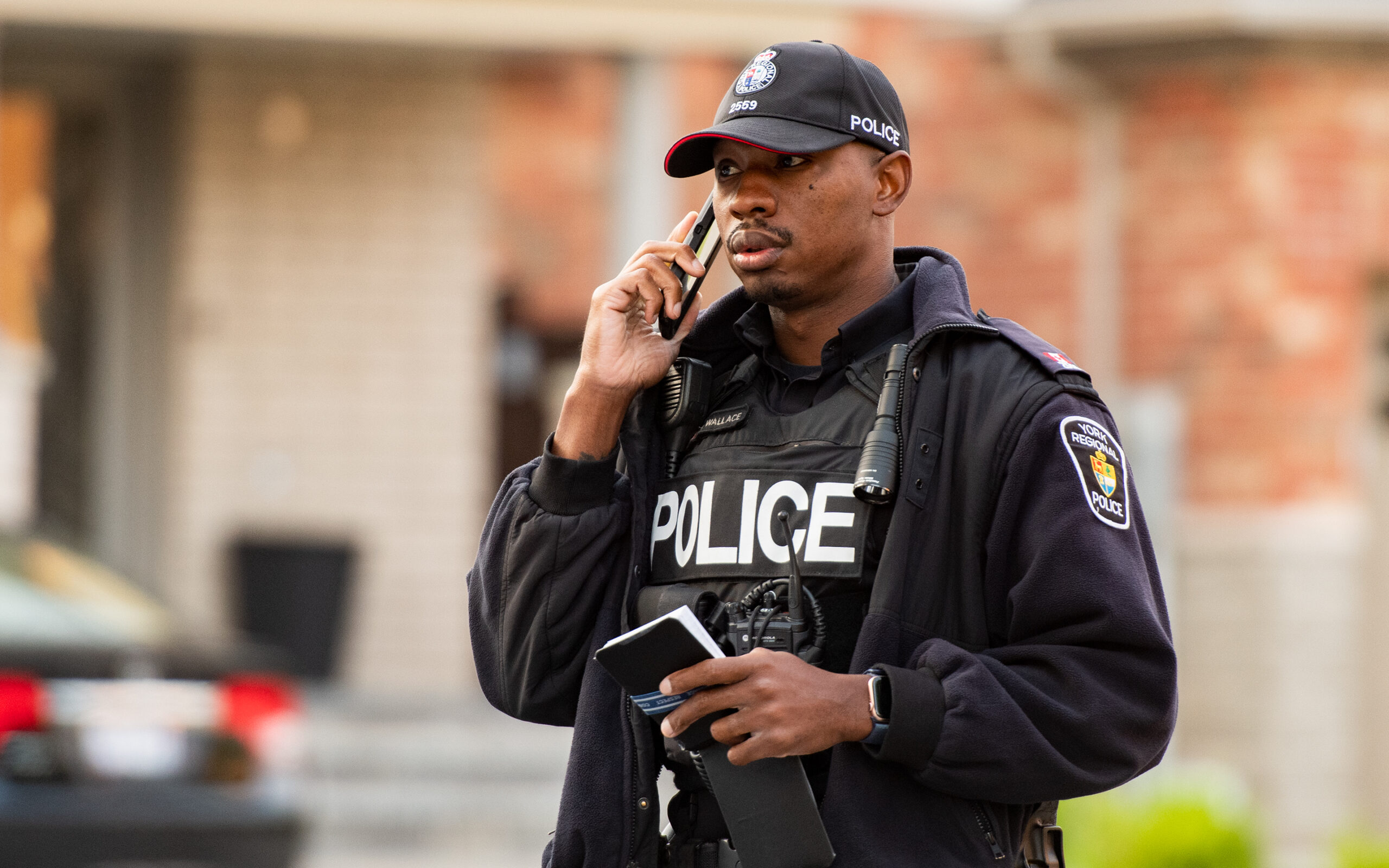Addressing racism in policing
The Addressing Racism and Racial Discrimination in Policing training is now a cornerstone of our anti-racism efforts
YRP ROLLS OUT THIRD PHASE OF MULTI-YEAR TRAINING PROGRAM
Every member of York Regional Police is responsible for ensuring that the service is a safe, welcoming and inclusive place to work.
We take pride in being an equitable and progressive organization. To continue leading the way in promoting inclusivity, members are required to take part in Addressing Racism and Racial Discrimination in Policing, the third phase of YRP’s multi-year anti-racism training program.
“Achieving a truly inclusive workplace requires confronting the ugly reality that racism exists in our workplace,” acknowledged Chief Jim MacSween.

The in-person instruction was developed in partnership with consultants from Foster and Associates. The project team consisted of members from the Professionalism, Leadership and Inclusion Office, as well as the Training and Education Bureau. This team received input and feedback from the police service’s Anti-Racism Training Working Group, internal support networks and community partners.
“Achieving a truly inclusive workplace requires confronting the ugly reality that racism exists in our workplace.”
Chief Jim MacSween
The course focuses on the realities of racism and how to identify, address and prevent it within our organization and throughout the community.
“The Addressing Racism and Discrimination in Policing training is one of a kind and it differs from other training because of the collaborative approach used to create it,” said Inspector Chirag Bhatt. “Human rights experts, our own members and our community all played a part in its creation.”
The course is taught by specially-trained YRP members, who deliver a variety of anti-racism topics, including systemic racism, with a focus on positive outcomes and solutions to common systemic problems, barriers and blind spots.
“Some topics in the training are difficult to discuss,” said Chief MacSween. “But it’s important that we engage in a positive dialogue together.”



